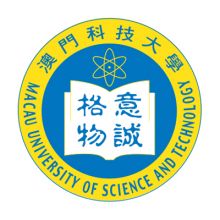The Macau University of Science and Technology (MUST) Faculty of Medicine, which opened last autumn just months before the novel coronavirus pandemic began, has survived its baptism by fire.
Manson Fok, MUST’s medical dean, told Times Higher Education that the institution has been “very lucky to have been able to complete the full first-year curriculum” as well as final exams and interviews for next year’s cohort.
MUST Medical managed to stay on its feet thanks to Macao’s swift and strict Covid-19 measures, which kept total infections to under 500, as well as flexibility in how the institution approached teaching and research.
“For our curriculum, we did something special. In parallel, we used Harvard Medical School’s basic science courses online, for subjects like physiology and biochemistry,” Professor Fok said, adding that his students achieved a 70 per cent pass rate on the Harvard classes.
MUST’s new medical school, the first in the former Portuguese colony, was also able to conduct research on the quickly evolving coronavirus.
On 15 June, Hong Kong Polytechnic University (PolyU) and MUST launched an artificial intelligence system that could help doctors differentiate which pneumonia cases were more likely to be linked to Covid-19, as opposed to other causes.
The system is based on new research published in the journal Cell, led by Kang Zhang, a medical professor who moved last year from the University of California, San Diego to MUST.
Professor Zhang reassured that the AI tool was meant to complement, not replace, human doctors. “It will liberate our doctors from tedious groundwork, so they can be in a much better position to give medical advice and restore human interaction,” he said.
Johnson Lau, an adjunct professor of applied biology and chemical technology at PolyU and part of the project’s AI team, said that “machines cannot replace a good doctor.” However, AI tools could help physicians quickly share information on new diseases such as Covid-19, he added.
“Many doctors have never seen this before, so it’s very difficult for them to acquire the knowledge needed to become experts in this area. After all, it’s only a few months old,” he said of the novel coronavirus. “They need to learn from other doctors. This tool will be of great assistance to junior doctors or doctors from countries without experience with this kind of disease.”
Professor Fok explained how the tool could help overwhelmed healthcare systems. “Imagine there are 10,000 new suspected cases, and hundreds or even thousands of patients heading to hospitals,” he said. “If we do things the traditional way, with doctors spending time to read every CT scan, it becomes impossible. AI will allow us to process huge numbers of potential patients.”
Alexander Wai, PolyU’s deputy president and provost, said that this latest project built on longstanding research ties with MUST. “Leveraging PolyU’s strengths and our collaborations with different research partners, we are able to contribute to the well-being of humankind,” he said.
MUST is now working with Stanford University, Baylor University and the University of Buffalo to use this AI tool to serve US populations.
Led by Professor Zhang at MUST, the Cell paper’s co-authors include academics from Tsinghua University, Wuhan University, Sichuan University, as well as Sun-Yat Sun University and Guangzhou Medical University, both of which are in the southern province of Guangdong, which borders Hong Kong and Macao.
These three regions, collectively called the Greater Bay Area, are increasingly collaborating on research. Their governments have invested heavily into promoting new higher education institutions. MUST, for example, is only 20 years old and was included for the first time in the THE Asia University Rankings this year.
Register to continue
Why register?
- Registration is free and only takes a moment
- Once registered, you can read 3 articles a month
- Sign up for our newsletter
Subscribe
Or subscribe for unlimited access to:
- Unlimited access to news, views, insights & reviews
- Digital editions
- Digital access to THE’s university and college rankings analysis
Already registered or a current subscriber? Login











